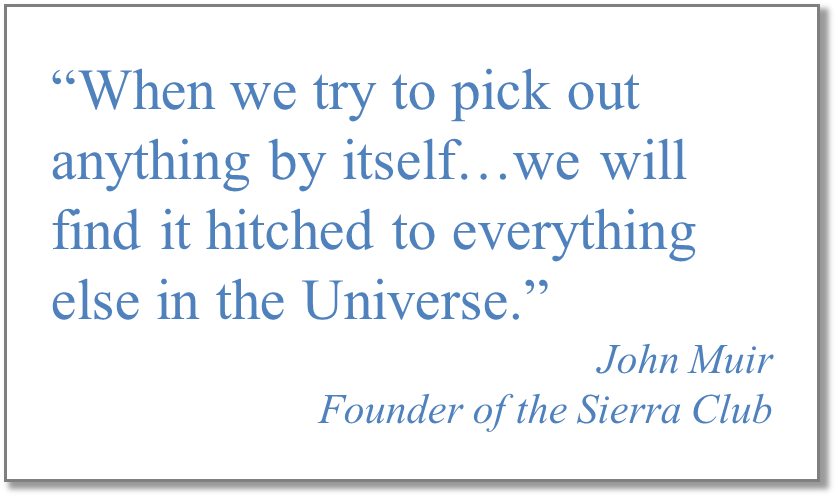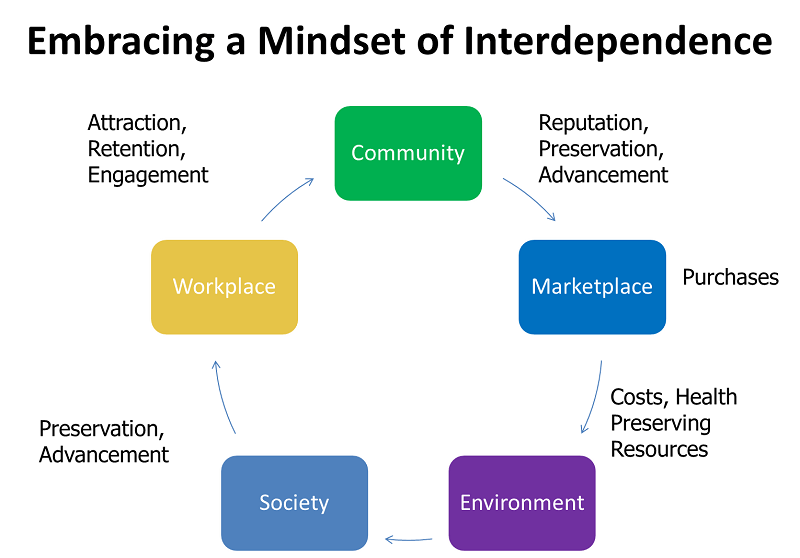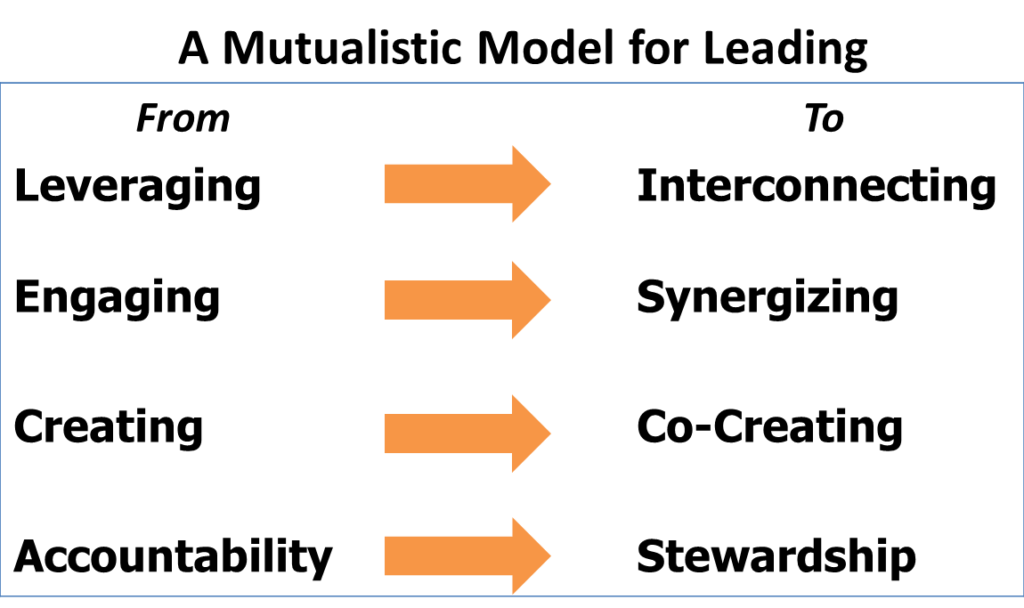 From a systems thinking framework, I have been exploring the concept of mutualism for a few years now. I have always believed that everything is somehow connected to everything else, just like the human body is comprised of interconnected pieces all with specific functions, working together to keep our bodies running smoothly. We can think of any complex system from automobiles to computers in the same way. No one part working independently will make the system function properly.
From a systems thinking framework, I have been exploring the concept of mutualism for a few years now. I have always believed that everything is somehow connected to everything else, just like the human body is comprised of interconnected pieces all with specific functions, working together to keep our bodies running smoothly. We can think of any complex system from automobiles to computers in the same way. No one part working independently will make the system function properly.
Mutualism, a term commonly used in the natural sciences to understand complex relationships among different species, can be instructive as we think about inclusion. Mutualism is a web of interdependent relationships, benefiting each other for sustainability. The web represents the multiple dimensions (connections and layers) that are always in play in the organization. Simply put, everything is connected to everything else, especially in a closed system like a corporation.
Sustainability can be defined as the parallel care for the planet and the people in it. Author Andrew Savitz in his book The Triple Bottom Line, makes the case for a three pronged sustainability model that can be described as the three P’s:
- Profit
- People
- Planet
He says that all three have to be attended to simultaneously (interdependence) for sustainability.
Yet, contrary to this natural order, organizations are structured in silos, distinct business units that are not set up to easily communicate with each other.
These structural dynamics foster uni-dimensional thinking, creating the familiar “us and them” competitive, polarized environment that leads to suboptimal business results as internal units are often set up to compete, either explicitly or implicitly, rather than collaborate with each other. It shows up in the classic tensions of “the field” vs. “headquarters,” “research & development” vs. “sales,” “marketing” vs. “manufacturing.”
As we think about the goal of inclusion, that is, to ensure that everyone in the organization has the opportunity to reach his/her full potential, it is interesting to think it from the perspective of mutualism.
We can be inclusive without being mutualistic. Mutualism takes it to the next level of thinking. As Dr. Martin Luther King, Jr. expressed it:
Whatever affects one directly, affects all indirectly. I can never be what I ought to be until you are what you ought to be. This is the interrelated structure of reality.
Currently we think of inclusion as a good thing because it rights past wrong, it raises the likelihood of increasing productivity and engagement in the workplace and helps us to connect better to our customers, members, and clients.
I suggest that we need inclusion for our very survival. As a prime example, in the world of interconnectedness if we fail to educate our youth, we will not have a skilled workforce. It is not just a good thing to do, it is necessary for our sustainability.
The Western more individualistic ways of thinking and being, often miss the vital mutualistic dimension of our existence. In the larger context there can be no “us and them” if “we” are to survive. Individualism as contrasted to collectivist cultures leads us to think about ourselves in the context of ourselves versus in the context of our relationship to others.
As one example from the D&I space, reverse mentoring has become popular (See Point of View: Why not “reciprocal” instead of “reverse” mentoring?). I think that reverse mentoring still fosters “us and them” thinking. I advocate for reciprocal mentoring that inherently positions the relationship as that of equals who benefit from each other.
If our brains were wired to be mutualistic we would eliminate concepts like “sink or swim, “assimilation”, “survival of the fittest”, “crabs in the barrel” and replace them with ideas like “synergy”, “interdependence”, ‘flow” and “win-win”.





















To keep your analogy going, the subtleties and synergy of nature are even greater than we can recognize. Imagine the possibilities of working and living in inclusive communities. Our individualist views and sense of “being the winner” actually undermine our full potential. I agree with the need for this “rewiring”. But how do we frame the values of mutualism in an individualistic society?